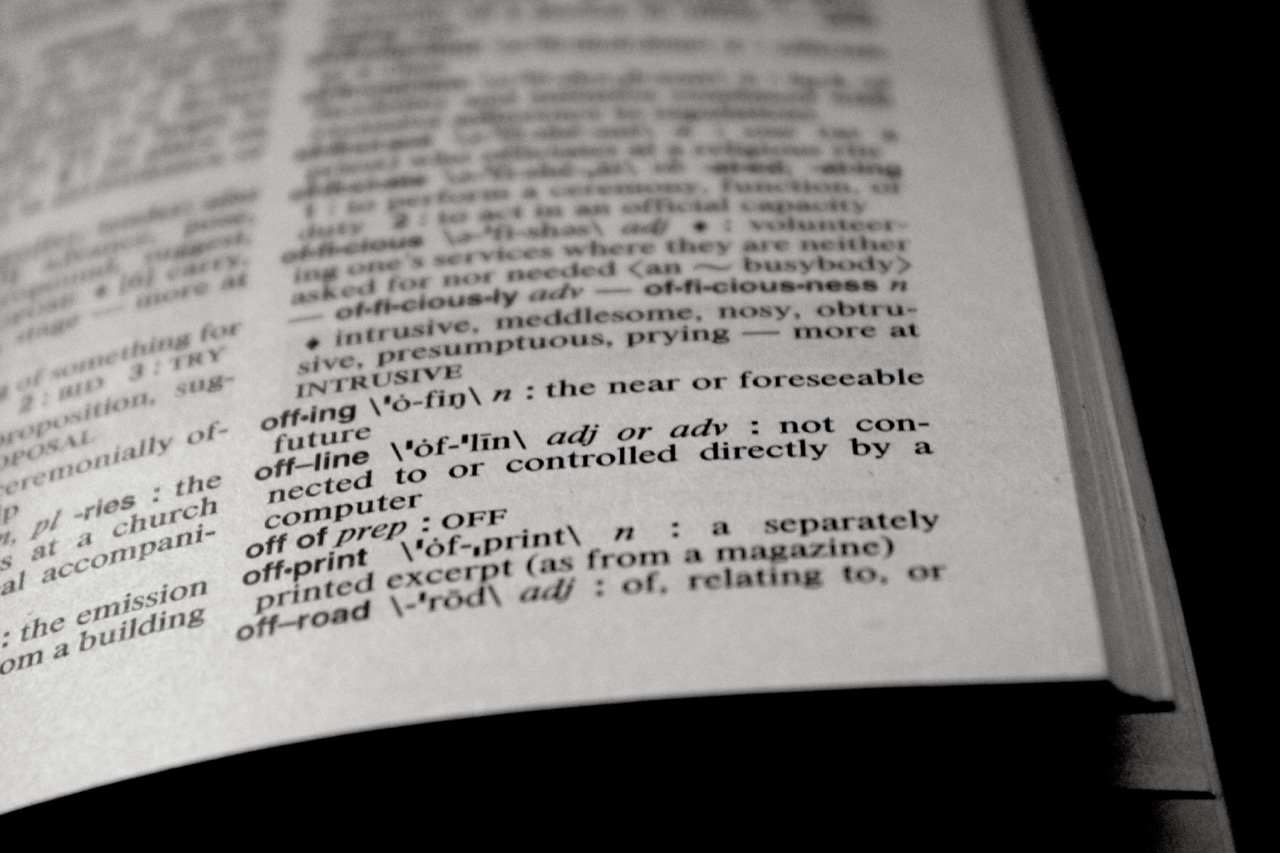” Not connected to or controlled directly by a computer.” That is the definition of off-line in Merriam-Webster’s 5th printing of its Dictionary and Thesaurus – my trusted reading companion. Offline, without the hyphen, is how we use the word today.
It’s an exploratory journey flipping through the pages of a printed dictionary or thesaurus. Often, our eyes catch glimpse of other words while we turn the pages in search of our target. Words we have never seen before, and words that pique curiosity. Some catch our eye flipping pages, some are adjacent to the word we are looking up. For example, offing, a noun that means “the foreseeable future” – I sure wouldn’t have guessed that meaning. Now I know. Words like officious, an adjective meaning “to volunteer one’s services where they are neither asked nor needed”… an officious busybody! I know a few of those. Two new words added to my vocabulary.
This is an offline experience.
I recommend anyone learning a new language pick up a printed dictionary. They will experience the serendipity of seeing new words and expanding their vocabulary in whatever language they are studying. I happen to be learning English. I also benefitted greatly from a printed dictionary to learn Chinese. A thick, but portable dictionary goes a long way. See a word on a sign you don’t know? Look it up. You’ll likely learn a few other words in the process just by seeing them on the pages with their definitions right below the word. It’s hard not to. I seem to be distracted from my original intention to look up offline. I learned a bit along the way.
What does it mean to be offline? Not connected or controlled by a computer. Our expected state now is to be online, which according to Meriam-Webster means to be “connected to, served by, or available through a computer network.” The word below it is onionskin, – “a thin strong translucent paper of very light weight” – in case you were curious.
Available through a computer network – that is the usual state of humans today with smartphones and connected devices.
A rapidly increasing number of services require smartphone applications, QR codes, authenticators, and a connected device to access them. If we are offline – not connected – we simply are denied the service. Parking meters that only take online payment via a QR code or apps are an example. Admittance to an event that requires a contactless Near Field Communication (NFC) e-ticket is another example. If you are without a smartphone, then too bad… no access for you.
When public services start requiring a connected device to access the service, more people will be denied the option to live offline. A public bus that requires a QR code or app to access it. It denies access to those without a smart device and forces us to be online.
For those that currently or want to live offline, without a connected device in their pocket – will we always be able to? I see more interest in tools and services to help people live offline – not connected to or controlled by a computer. Dumbphones in particular – phones that simply make calls and text without internet. Or, no phones. Simply leaving the phone at home when going out with friends or family. People that want to be connected with people, not connected to a computer. People who want to be present.
I want the option to live offline, and many others do. Read “The Dumbphone Boom is Real,” published in April 2024 in The New Yoker.
Let’s make sure we create a world where we can live offline and still access services. Let’s educate people to make sure the services they offer include an offline option.
Is someone you know creating an event that requires a QR code or smartphone to access it? Ask them to provide an offline option, like cash and a card. See a service that requires an app to access it, like a delivery or ride-share service? Ask them to provide an offline, call-in option. Does your school require you to use online textbooks? Ask them to provide an offline, printed version. We know there are benefits of flipping the pages.
Be an offline advocate.
Owen
December 21, 2024
